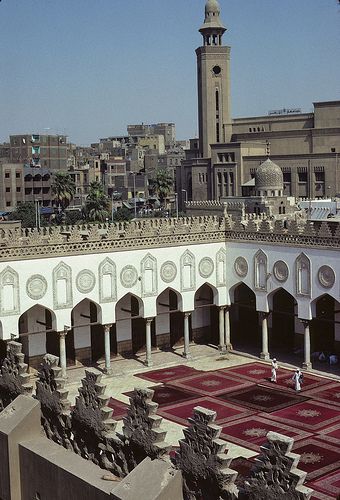 |
| Al-Azhar |
The Fatimids established al-Azhar, one of the oldest universities in the world, in Cairo in 970. Built around a large mosque with an open courtyard surrounded by columned walkways where classes were taught, al-Azhar quickly became one of the premier educational centers in the entire Islamic world, attracting students from Asia, Africa, and, in subsequent centuries, the Western Hemisphere.
Originally, the university focused on the tenets of the Isma’ili sect of Islam followed by the Fatimid rulers, but over the following centuries the university became a center for orthodox Sunni belief. By the 1600s the Shaykh al-Azhar, leader of al-Azhar, was chosen from among the shaykhs of the university.
 |
| A peek inside Al-Azhar Mosque and University nowdays |
Following sultans added further buildings and ornamentation to the sprawling complex, including living quarters for students, libraries, and the mosque. After the 1952 c.e. revolution in Egypt, Gamal Nasser modernized and instituted major reforms including the creation of a College of Islamic Women and the addition of colleges in medicine and engineering.